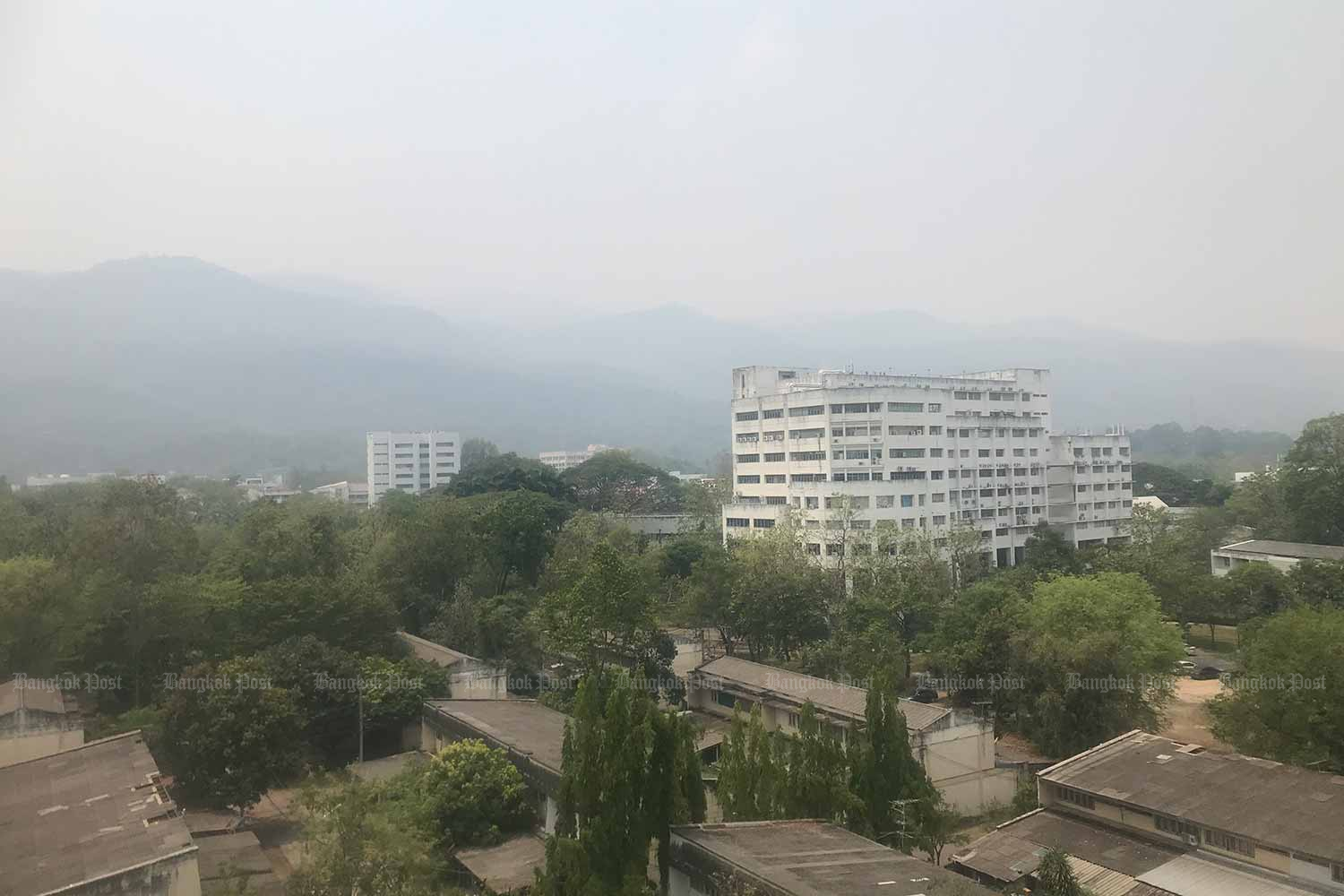
About 1,700 people in Chiang Mai on Monday brought a lawsuit in the Administrative Court against the prime minister and two state agencies for failing to tackle the annual dense smog over the region, which they say is shortening their lives by about five years.
About 60 people were at the Administrative Court in the northern province to file the lawsuit against caretaker Prime Minister Prayut Chan-o-cha, the National Environmental Board and the Securities and Exchange Commission. They accuse them of failing to exercise their authority to solve the smog problem in the North.
The approximately 1700 plaintiffs in the class action include northern people's networks, activists, academics from Chiang Mai University and local residents.
From Friday to Sunday last week, 727 people signed their names in support of the lawsuit at the faculty of law, Chiang Mai University, and about 980 people did so online. The plaintiffs blamed contract farming for the devastating air pollution.
One of the the plaintiffs, Sumitchai Hatthasan, director of the Centre for Protection and Revival of Local Community Rights, said the prime minister failed to fully exercise his power under the Enhancement and Conservation of National Environmental Quality Act to solve the problem.
The plaintiffs accuse the National Environmental Board of failing to effectively implement the national plan to tackle particulate matter pollution introduced in 2019.
The Securities and Exchange Commission was held responsible for failing to examine the sources of ultrafine dust pollution within the supply chains of major listed companies, to help solve the problem.
Dr Rangsarit Kanchanawanit from the faculty of medicine at Chiang Mai University said the health of people in urban areas was suffering from the unsafe levels of particulate matter 2.5 micrometre and less in diameter (PM2.5) all year long on average. The pollution level raised the risk of lung cancer, heart disease and stroke, and shortened people's lifespans by 4-5 years.
"We want to see the government change its policies, to show a strong political will and not just be considerate towards capitalist groups. This could save millions of people from illness," he said.
Chatchawal Thongdeelert, of the Breath Council, said the problem of PM2.5 became worse every year. The government needs to implement both short and long-term solutions to reduce air pollution.
"The root cause is burning, both in forests and on maize plantations... Political parties and the new government must prioritise this issue and have effective solutions," he said.